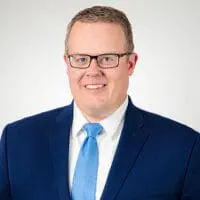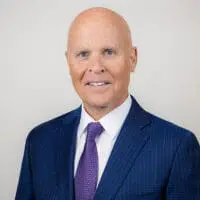Environmental & Natural Resources Law
Hot Topics in Utility Regulation and the Spread Option Offense (Yes, American Football Can Be an Analogy for Anything)
In the 1980s, legendary head coach Joe Gibbs for the Washington D.C. franchise was tortured about how to deal with ferocious pass-rushing force and elite outside linebacker Lawrence Taylor for the New York Giants (#2 overall pick in the ’81 NFL draft out of UNC). Using his coaching genius, Gibbs inserted stalwart offensive lineman Joe Jacoby (undrafted out of Louisville) at left tackle due to his quick feet and superior athleticism. The result contributed to three Super Bowls for Gibbs and the Washington franchise.[1] In the 1990s, innovative college football coordinator Rich Rodriguez (Clemson) and up-and-coming coach Urban Meyer (then a coordinator at Colorado State and Notre Dame) instituted an attack that balanced a sophisticated passing offense with a running quarterback (QB), so that the defense would have to assign a linebacker or safety to the QB.[2] The spread offense is now utilized by NFL teams including the Carolina Panthers and superstar QB Cam Newton (#1 overall pick in the 2011 NFL Draft from Auburn).
So you may be asking what does Joe Jacoby and Urban Meyer have anything to do with utility regulation. But like the evolution of the left tackle or the spread offense, state utility commissions will have to grapple with new issues and new entities intervening in utility cases. What once was a relatively sleepy legal area has now become a laboratory for exotic arguments and elaborate testimonies. Indeed, the days of the Barry Switzer wishbone offense are all but extinct.[3] The Arizona Corporation Commission (ACC) in particular is adjusting, and has had to adjust, its approach to address a multitude of evolving issues over the past decade, culminating in the following areas, many of which have been the subject of recent blog posts on this site.
First, how should utilities be able to meet the state renewable energy requirement? The ACC has recently opened a generic docket to update the renewable energy standard tariff rules (Docket No. E-00000Q-16-0289). Among the many issues to be tackled is whether utilities should own renewable generation (especially distributed renewable generation) to meet its requirement, whether utility ownership is inherently better or worse than third-party ownership, and how to encourage the location of distributed generation where it could provide the most benefit. Using a tactic similar to the cover-zero all-out blitz that the Ryan brothers would appreciate, some solar industry trade groups have vociferously objected to any program by a utility that allows it to own distributed generation, arguing that such programs are both unfair and anti-competitive. Utilities may also have to employ protection schemes to combat Double-A gap arguments attacking community solar programs that allow customers to “purchase” blocks of a solar facility not on their premises. But like a diverse offense seeking to stress a defense, this docket will also include a whole panoply of issues regarding renewable energy and distributed generation including exploration of achieving 30% renewable energy generation (by annual kWh) by 2030, and modernizing the grid to support higher distributed generation penetration and emerging technologies.
Second, there is the issue of whether to approve merchant transmission projects. Michael W. Patten detailed whether Arizona really “needs” merchant transmission lines earlier this year.[4] Now the Southline Transmission Project takes the field amidst the challenge of matriculating the ball forward and showing how Arizona will need a second merchant transmission line not associated with any regulated Arizona utility – in ACC Docket No. L-00000A-16-0370-00173 (Case No. 173). The first such project, the SunZia line, was narrowly approved by a 3-2 vote. The likely prognostication is that Southline will need to establish a more robust case of how Arizona specifically benefits from the project, or succumb to the stalwart defensive force reminiscent of the 2000 Baltimore Ravens.
Third, are the ongoing issues with regulation of water utilities. Timothy J. Sabo discussed the Arizona Supreme Court decision to uphold the “SIB” mechanism – designed to more timely allow water utilities to fund water infrastructure.[5] Also ongoing is the effort to implement ACC policies to reduce regulatory burden on small water companies, acquiring smaller viable and non-viable water systems, and reform how the cost of capital is determined approved in ACC Decision No. 75626.[6] The ACC’s approach to water utilities reflects a balanced and diversified game plan, similar to Bruce Arians’s Arizona Cardinals (and Northern Iowa standout running back David Johnson, the #86 overall pick in the 2015 NFL Draft), employing multiple receivers and formations. But how and when the “SIB” is further implemented and how these water policies will actually come into play, like implementing any new offensive system, remains to be seen on the proverbial “game film.” Situations like the recent water outage and water quality troubles with Brooke Water, LLC and Circle City Water Company, LLC may pose an early “road test” for some of the new policies.[7]
Fourth, and perhaps dwarfing all of these other important issues at least in terms of publicity, is the ever-changing electric landscape with distributed solar and net metering. Raymond Heyman detailed the struggle of how rooftop solar company issues may be balanced with the core regulatory functions of the ACC in September.[8] Like balancing the need to both run the ball and set up play action, the ACC has to make sure that policies such as net metering do not tip the scales too much one way, such that an innovative defensive alignment doesn’t thrust the regulatory paradigm into too many third-and-long situations. Indeed, the ACC’s “Value of Solar” docket (ACC Docket No. E-00000J-14-0023) and the many ongoing electric rate cases are putting this struggle front and center.[9] Not to be ignored is the electric utilities integrated resource planning and the future of conventional resources like coal. J. Matthew Derstine noted the Piedmont Energy bankruptcy and the steep decline in the demand for thermal coal in April.[10] Is coal all but extinguished as a viable resource like the so-called “ground and pound” offense, or does it still have a place in today’s energy landscape like a power running game manned by a blue-chipper like Ezekiel Elliot (#4 overall pick in the 2016 NFL Draft to Dallas from “The” Ohio State University) and a superior mauling offensive line (featuring #9 overall pick in the 2011 NFL Draft from USC, Tyron Smith)?
As can be seen, the ACC and other public utility commissions face many challenges that will keep commissioners looking at game tape well into the evening hours. Hopefully, the ACC will be able to rise above and put in place a diverse and flexible, yet effective, offense with the deadly efficiency of the Bill Belichik / Tom Brady led New England Patriots, rather than sliding into a dysfunctional malaise like that of the New York Jets.[11]
[1] Michael Lewis detailed this chain of events when describing the horrific injury to UND QB Joe Theismann (#99 overall pick in the 1971 NFL Draft out of UND) in The Blind Side: Evolution of a Game, © 2007 W.W. Norton and Co., at 20-24. This was also the chronicle of Ole Miss blue-chip left tackle Michael Oher (#23 overall pick in the 2009 NFL Draft to Baltimore). The book was turned into a major motion picture starring legendary actress Sandra Bullock, who won an Academy Award for Best Actress in 2010 for her acting prowess portraying prominent Ole Miss alumnus Leigh Anne Touhy.
[2] See Tim Layton, Blood, Sweat and Chalk: The Ultimate Football Playbook, © 2010 Sports Illustrated Books at pp 167-68.
[3] See http://newsok.com/article/3380409.
[4] http://www.swlaw.com/blogs/environmental-and-natural-resources/2016/02/12/does-arizona-really-need-merchant-transmission-lines/.
[5] http://www.swlaw.com/blogs/environmental-and-natural-resources/2016/08/09/arizona-supreme-court-affirms-corporation-commissions-constitutional-authority/.
[6] Mr. Sabo also detailed these policies at http://www.swlaw.com/blogs/environmental-and-natural-resources/2016/08/01/arizona-corporation-commission-issues-new-water-policies/.
[7] ACC Docket No W-03039A16-0322 and Decision No. 75755.
[8] http://www.swlaw.com/blogs/environmental-and-natural-resources/2016/09/15/rooftop-solar-companies-and-utility-regulation/.
[9] Mr. Patten details the “Value of Solar” recommended opinion and order at http://www.swlaw.com/blogs/environmental-and-natural-resources/2016/10/13/arizona-corporation-commission-takes-a-step-closer-to-determining-the-value-of-distributed-generation-for-Arizona/.
[10] http://www.swlaw.com/blogs/environmental-and-natural-resources/2016/04/22/is-coal-down-for-the-count/
[11] The author of this blog is a lifelong New York Jets fan coming to the realization that the Jets are so bad that they will never win another Super Bowl ever, or at least for as long as humans walk the Earth. He’s equally upset that the Patriots will likely never be bad again for as long as he lives.


























